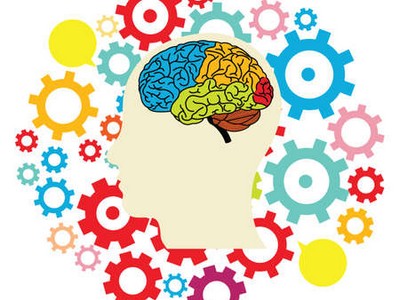
Depression Anxiety Stress Psychologist Mermaid Beach (07) 5539 9798
Depression Psychologist Mermaid Beach

Introduction: Depression Mayo Clinic Psychologist Mermaid Beach Near Me
In today's busy and demanding world, it is not a surprise that numerous individuals struggle with stress, anxiety, and depression. These psychological health conditions can have a profound influence on a person's general well-being and quality of life. While tension, anxiety, and anxiety are typically viewed as different entities, there is a strong link between them. This article will check out the connection in between tension, stress and anxiety, and depression, shedding light on the aspects that add to their coexistence and the potential strategies for handling these conditions effectively.
The Link Between Stress and Anxiety
Stress and stress and anxiety frequently work together, as one can be a trigger for the other. When we experience stress, our bodies release cortisol, typically referred to as the tension hormone. This physiological response prepares us for the fight-or-flight reaction, allowing us to handle potential dangers or challenges. Nevertheless, chronic or extreme tension can result in extended activation of the tension response system, leading to anxiety.
Anxiety is characterized by consistent sensations of worry, fear, or unease. It can manifest in numerous types such as generalized anxiety condition (GAD), panic disorder, social stress and anxiety disorder (SAD), or specific fears. Individuals with stress and anxiety might experience physical symptoms like increased heart rate, sweating, shivering, and difficulty focusing. The presence of chronic stress can worsen these signs and contribute to the development or worsening of stress and anxiety disorders.
The Connection Between Stress And Anxiety and Depression
Anxiety and depression often exist side-by-side in individuals who experience mental health obstacles. In fact, research study recommends that about half of those identified with anxiety likewise fulfill the requirements for a stress and anxiety condition. The relationship between these 2 conditions is complicated and multifaceted.
One possible description for this connection is that both anxiety and depression share typical hidden systems in the brain. Neurotransmitters like serotonin and norepinephrine play a surfersparadisechiropractic.com.au vital function in regulating mood, and imbalances in these chemicals can add to the development of both stress and anxiety and anxiety. In addition, individuals with stress and anxiety might experience unfavorable idea patterns and rumination, which can add to the onset or worsening of depressive symptoms.
Furthermore, the chronic nature of anxiety can be emotionally draining and lead to sensations of despondence and misery, qualities frequently associated with anxiety. The continuous worry, fear, and anticipatory stress and anxiety that people with stress and anxiety experience can take a toll on their psychological health and increase their vulnerability to establishing depression.
The Effect of Stress on Depression
Stress is a considerable contributing element to the advancement and worsening of depressive symptoms. When we are exposed to chronic stress, our bodies produce greater levels of cortisol, which can interfere with the fragile balance of neurotransmitters associated with mood regulation. This interruption can result in a decline in serotonin levels, frequently associated with depression.
Moreover, tension can likewise impact various aspects of an individual's life that are important for keeping good psychological health. It can disrupt sleep patterns, interfere with appetite and eating practices, stress social relationships, and hinder overall self-care practices. These elements combined can contribute to the beginning or worsening of depressive symptoms.
Strategies for Handling Tension, Stress And Anxiety, and Depression
While tension, stress and anxiety, and anxiety can be challenging to browse, there are a number of strategies people can use to manage these conditions successfully. It is essential to remember that what works for a single person might not work for another. Therefore, it may require time and experimentation to discover the most suitable coping mechanisms.
Seeking Professional Help: Consulting a qualified mental health expert such as an anxiety psychologist in Surfers Paradise is typically the initial step in handling tension, anxiety, and depression. These experts have the knowledge and know-how to provide customized treatment strategies tailored to an individual's specific needs.
Cognitive-Behavioral Treatment (CBT) : CBT is a widely-used therapeutic method that focuses on identifying and changing unfavorable idea patterns and habits. It can assist individuals develop healthier coping systems, obstacle illogical beliefs, and manage tension, anxiety, and depression more effectively.
Medication: Sometimes, medication might be needed to manage serious signs of anxiety and anxiety. Antidepressants and anti-anxiety medications can assist manage brain chemistry and ease symptoms. However, it is important to work closely with a healthcare provider to find the ideal medication and dosage.
Lifestyle Modifications: Engaging in regular exercise, practicing mindfulness or meditation techniques, keeping a healthy diet plan, getting enough sleep, and focusing on self-care activities can substantially impact psychological health. These way of life modifications can decrease tension levels, improve mood, and improve overall well-being.
Social Support: Structure a strong assistance network of good friends, member of the family, or support system can offer people with the emotional support they need when navigating tension, anxiety, and anxiety. Having somebody to confide in and lean on during challenging times can make a considerable difference in handling these conditions.
Stress Management Techniques: Including tension management techniques such as deep breathing exercises, progressive muscle relaxation, journaling, or taking part in hobbies that bring joy can assist individuals minimize stress levels and promote relaxation.
FAQs
1. What are the main symptoms of anxiety?
- Symptoms of anxiety consist of extreme concern or worry, restlessness or sensation on edge, irritability, problem concentrating or sleeping, muscle stress, and physical signs like increased heart rate or shortness of breath.
2. How do I understand if I have depression?
- Common signs of depression consist of persistent sensations of sadness or emptiness, loss of interest in activities once enjoyed, modifications in appetite or weight, difficulty sleeping or oversleeping, feelings of insignificance or guilt, fatigue or loss of energy, difficulty focusing, and thoughts of death or suicide.
3. What is the distinction between stress and anxiety and depression?
- While anxiety is characterized by excessive concern and worry, depression is marked by persistent sensations of unhappiness, despondence, and a loss of interest in activities. Anxiety focuses more on future-oriented issues, while anxiety centers around sensations of despair and emptiness.
4. Can worry cause anxiety and depression?
- Yes, persistent or excessive stress can contribute to the advancement or worsening of anxiety and depression. Tension interrupts the delicate balance of neurotransmitters associated with mood guideline, resulting in imbalances that can set off these conditions.
5. How can I manage stress effectively?
- Effective tension management techniques include workout, mindfulness or meditation practices, preserving a healthy diet plan, getting enough sleep, participating in pastimes or activities that bring pleasure, seeking support from enjoyed ones, and practicing relaxation methods like deep breathing workouts or progressive muscle relaxation.
6. When need to I seek professional assistance for tension, anxiety, or depression?
- It is a good idea to look for expert help if tension, anxiety, or depression significantly hinder day-to-day functioning, relationships, work efficiency, or general quality of life. A psychological health specialist can supply a precise diagnosis and suggest appropriate treatment options.
Depressive Disorders Psychologist Mermaid Beach
Definition Of Major Depressive Disorder Psychologist Mermaid Beach Near Me
Isabella Whittingham Registered Psychologist Gold Coast
Surfers Paradise Chiropractic Centre-Dr. Bruce Whittingham
12 Thomas Drive, Surfers Paradise QLD 4217
(07) 5539 9798
https://surfersparadisechiropractic.com.au
Anxiety And Depression Help Psychologist Mermaid Beach Near Me